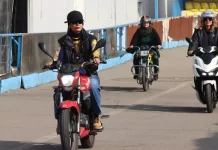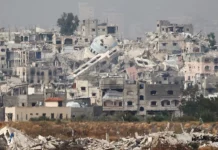DHAKA: Rohingya people cannot be guaranteed safety in Myanmar, advocates say, where the government has been accused of decades of abuse that has left the long-persecuted ethnic minority largely stateless.
For the nearly one million Rohingya living in the world’s largest refugee settlement in neighbouring Bangladesh, conditions are squalid and what limited opportunities existed have slowly disappeared, rights groups and residents said.
On the fifth anniversary of Myanmar’s military operation that forced more than 740,000 Rohingya to flee the country, the dilemma of being unable to return home while struggling to survive in Bangladesh looms large for refugees in these labyrinth camps of tarpaulin and bamboo crowded together on terraced hills.
“We had enough, we want to go back to home to Myanmar soon,” Azra Khatun told Al Jazeera from the Balukhali refugee camp. “So that our children can get some education and have a normal and decent life,” she said.
Two of Khatun’s three children were born in Bangladesh after she fled the 2017 military onslaught – a campaign that a United Nations fact-finding mission has said included mass murders of Rohingya civilians, gang rapes, and forced expulsions. The violence indicated “genocidal intent”, the UN said, a finding that authorities in Myanmar have rejected. –Agencies






